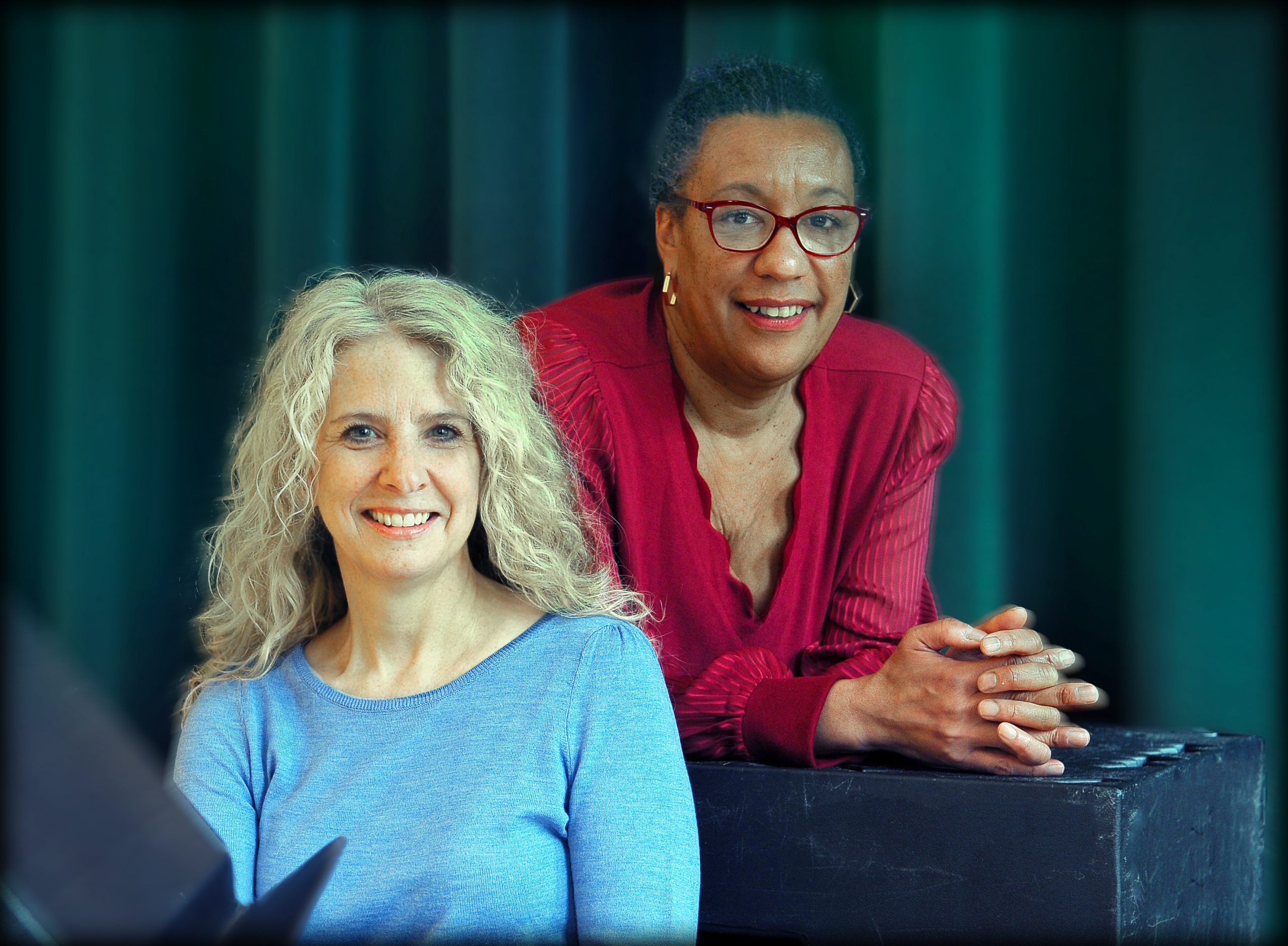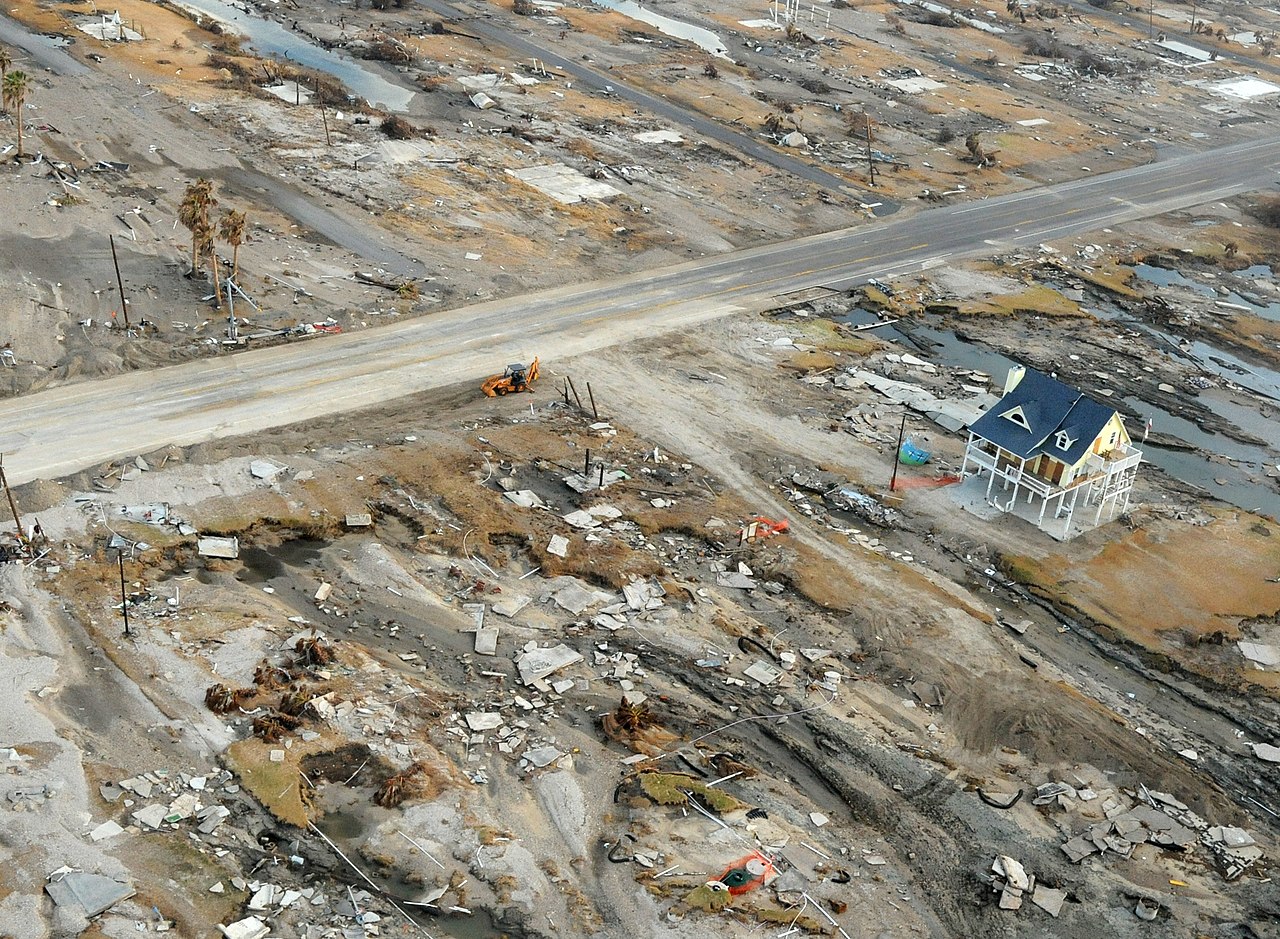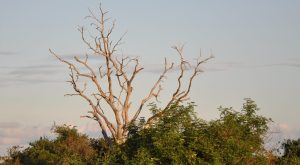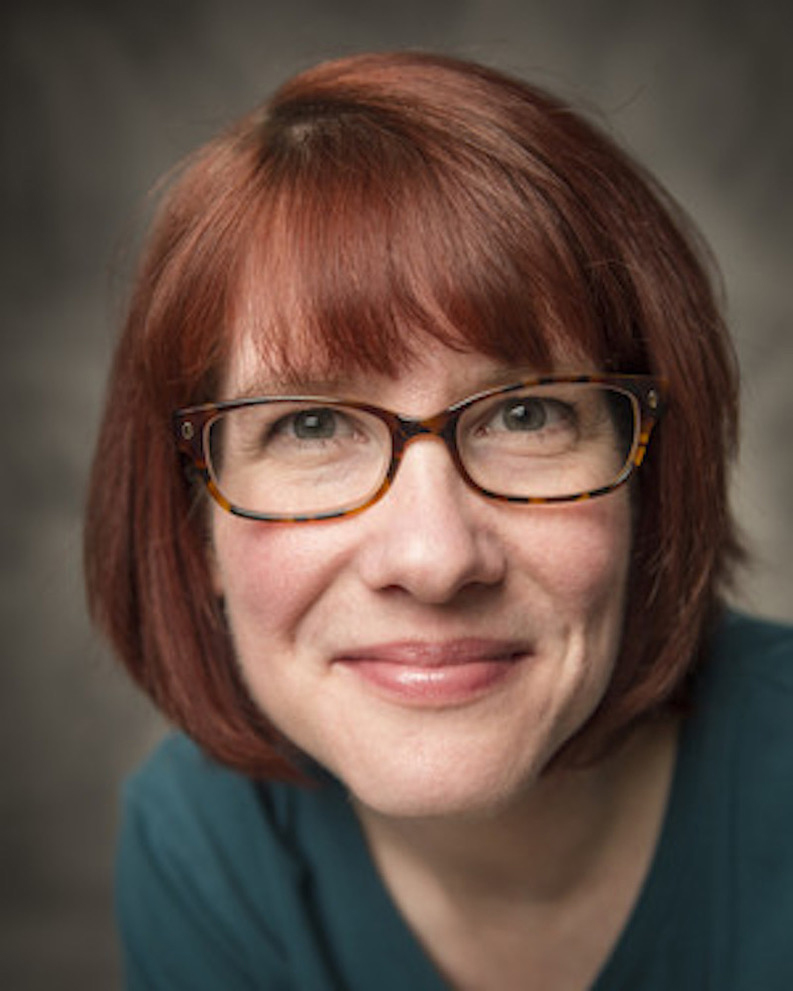An upcoming performance set on fictional Rollover Island fuses science and art to show the effects of climate change on one coastal community. The Process Series presents a staged reading of the play by UNC coastal scientist Laura Moore March 24-25.

Scientist and theater-goer Laura Moore had an epiphany about six years ago while attending a performance by PlayMakers Repertory Company. Moore’s work in coastal geomorphology focuses on the response of low-lying coastal environments to climate change, and she had been involved in theatrical performance and directing prior to graduate school.
“Something just clicked, and I thought, ‘I wonder if we could communicate what we’re learning from my research through the theater?’” said Moore, a professor in the department of earth, marine and environmental sciences in UNC’s College of Arts & Sciences. “I’ve always had this fascination about the tension between our desire to live literally at the water’s edge and how dynamic this landscape is. There’s an incredible conflict between those two things. I was excited about the possibility that two of my passions could converge.”
A series of conversations led Moore, who also holds an appointment in the Environment, Ecology and Energy Program, to local dramaturg and director Jules Odendahl-James (UNC Ph.D. performances studies ’03) and Kathyrn Hunter-Williams, teaching associate professor in UNC’s department of dramatic art and PlayMakers artistic associate.
“Laura is passionate and knowledgeable about her research, but on top of that is her understanding that the emotional impact of the information will probably be what changes hearts and minds,” Williams said. “We wanted to find out: How can a theatrical experience promote empathy and engagement and action?”

Stories of hurricane survivors
When Hurricane Ike hit Texas in September 2008, Bolivar Peninsula took the brunt of the storm. Over 1,000 homes were destroyed. Storm surges reached 20 feet. The tiny beachfront community of Gilchrist was nearly swept away, save for a few homes. Crystal Beach was submerged.
“People told us it was like a bomb went off, and you can’t understand it if you didn’t experience it,” Williams said.
In 2016, Moore and Williams received a Fostering Interdisciplinary Research Explorations (FIRE) grant to develop their project. (The grant is now called an Arts and Humanities Research Grant, and it is co-funded by the Institute for the Arts and Humanities and UNC Research.) The two traveled to Bolivar Peninsula, unintentionally but fortuitously, on the eighth anniversary of Ike to interview hurricane survivors.

“I really wanted to learn, why do people come back after a storm? And why do other people decide not to come back?” Moore said. “Hurricane Ike decimated much of the Texas coast, but most of the country never heard about the extreme impacts on Bolivar. Galveston drew more attention because it’s more populated.”
Moore thought she had an understanding of why people choose to live at the coast and what had kept families there for generations. But the trip changed her perspective.
“I remember sitting in our FEMA-built beach house and realizing that after people poured their hearts out to me, there’s another whole story to tell,” Moore said. “There’s a 360-degree view that we’re not seeing. And that was what we needed to share.”
Williams added: “The pull of the old and the new generations, the people who left, those who stayed behind and the families that came back — all of that is beautifully reflected in your script.”
Moore and Williams stress that Rollover is not a documentary-style performance. It is inspired by real-life experiences but set in the fictional community of Rollover Island.
Moore explained that rollover is a play on words, but it is also a scientific term used in her research. Rollover relates to the barrier islands that she studies, which are not static. They are dynamic land masses that move landward as sea level rises. Large storms are actually an important contributor to an island’s landward migration, which is known as “rollover.”
New works and different art forms
Odendahl-James has been working for years to bridge science and art in her work. She’s a professional theater artist but also director of academic engagement in the arts and humanities at Duke University.

One of the initial challenges the project team faced was trying to figure out exactly what form Moore’s play should take.
In 2017, Odendahl-James and Moore took a trip to New York to the Works on Water Festival in downtown Manhattan.
Works on Water is a triennial festival dedicated to artworks, performances, workshops and site-specific experiences that explore the artistic expression of water in the urban environment. The festival took on new relevance after Hurricane Sandy, which hit New York City in October 2012.
“All of Manhattan was realizing, ‘Wait a minute, we’re an island,’” Odendahl-James said. “So we went to the first Works on Water festival and learned from other artists about their collaborative experiences.”
Throughout the process, the trio also consulted with behavioral scientists and informal science education experts. They workshopped the play a few times, including in 2018 at CURRENT Artspace in Chapel Hill.
Odendahl-James will direct the upcoming Process series production. The Process Series is dedicated to the development of new works in the performing arts and stages professionally mounted productions of these works-in-progress.
The audience feedback at the end of each production is a valuable component of the series.
“You get a chance to try it out, to put it out into the world,” Odendahl-James said. “It’s also a chance to hear it being read and to make sure the dialogue makes sense and the stage directions are clear. All of those things only happen by speaking it out loud.”
Future of the project, the value of collaboration
The team is interested in exploring the idea of virtual and/or augmented reality in future iterations of the play.
Joseph Megel is an artist-in-residence in the department of communication and the director of the Process Series. His class, “Media in Performance,” is a collaborative class where students work in teams to design live performance projects using all types of digital media. Their final project this semester will be to create a design concept for Rollover, focusing on one scene in the play.
For Moore the playwright and the scientist, the project has continued to shape her research in new ways.
“This whole process has changed my scientific work and shifted the types of questions I ask in a way that’s really important and exciting,” she said. “It really further highlighted for me the value of interdisciplinary research.”
Odendahl-James hopes the audience will think about how people can come together to make difficult decisions around issues such as climate change.
“What we’ve learned over the last six years is that we’re all one storm away from it being our story,” she said.
Attend a limited-seating, staged reading of Rollover March 24-25 at 7:30 p.m. in room 101 of the Joan H. Gillings Center for Dramatic Art. Performances are free, but a $10 donation is recommended; reserve a ticket and donate. The performance is co-sponsored by EMES, the UNC Institute of Marine Sciences, the UNC Institute for the Environment and the Collaboratory for Coastal Adaptation over Space and Time (C-CoAST).
By Kim Weaver Spurr ’88
